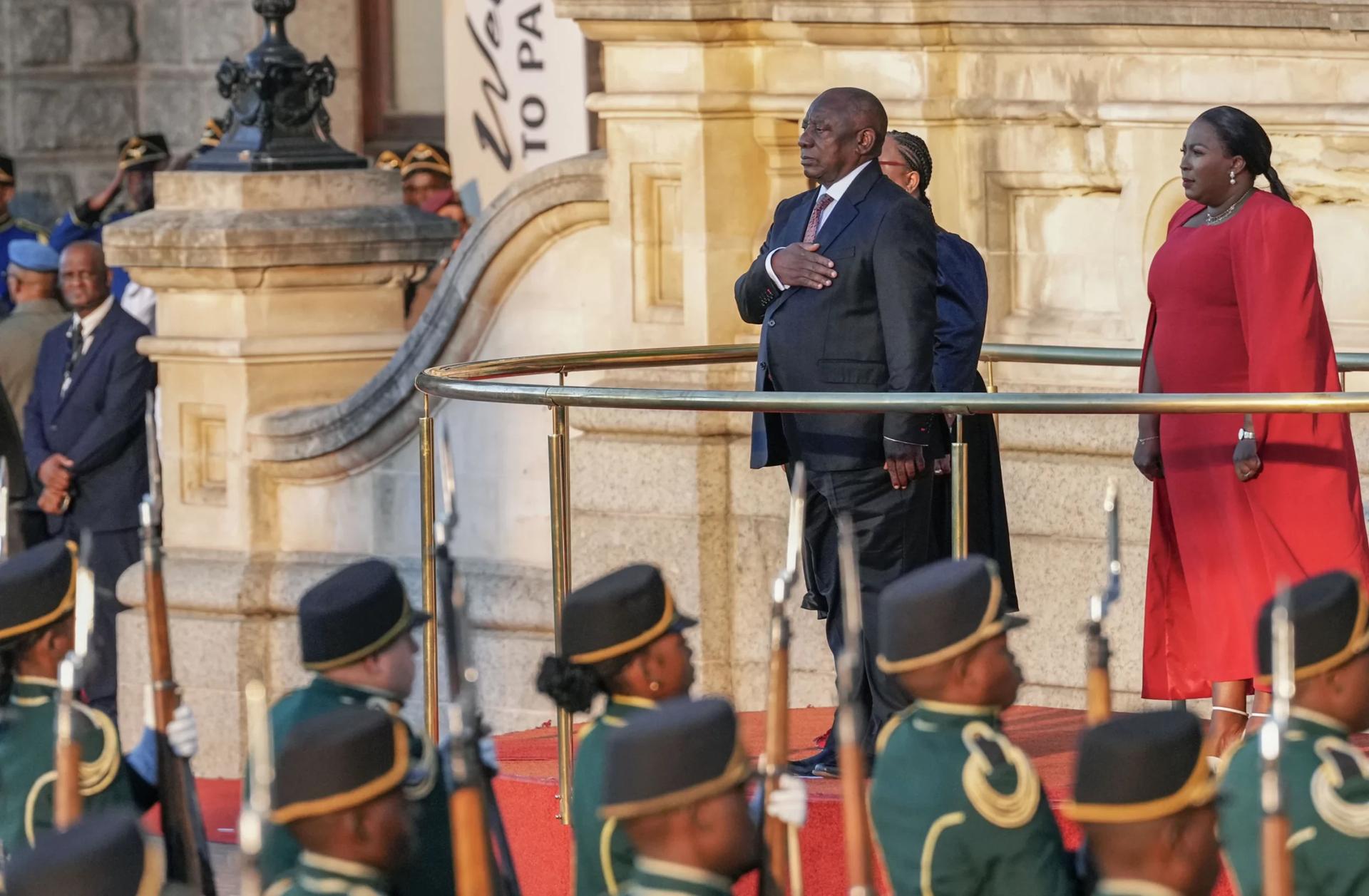YAOUNDÉ, Cameroon – One Catholic leader in Africa says U.S. President Donald Trump’s pause in foreign aid shows he doesn’t accept it as a tool of diplomacy.
The Director of the Justice and Peace Commission (JPC) of the South Africa Bishops’ Conference, Father Stan Muyebe told Crux that it is time for Africa to come up with a new definition of ethical leadership.
The priest was reacting to Trump’s January 20 executive order initiating a 90-day pause on new foreign aid programs to review their alignment with U.S. foreign policy, saying it has disrupted important life-saving services across Africa.
Each year, Africa receives over $8 billion from the United States. The money helps to feed starving kids, supply lifesaving drugs, and provides aid to people hit by disaster or war.
One particular program with so much significance for millions of African people now put on hold by the Trump freeze is the President’s Emergency Plan for AIDS Relief, or PEPFAR. For two decades, the program has been credited for saving over 25 million lives – most of them in Africa.
Muyebe says anyone who has been paying attention would have known that Trump has never been a fan of foreign aid.
“Although it is framed as a bureaucratic review of federal spending to ensure that it aligns with the policies of Trump’s administration, this move is a stark reminder of Trump’s long-standing hostility toward foreign aid. He views foreign aid as a wasteful expenditure, an example of a bloated government, rather than as a tool for soft power diplomacy and global engagement,” the priest told Crux.
“We should not forget that Trump’s hostility towards foreign aid is not new. During his first term, he repeatedly sought to cut funding for life-saving programs like PEPFAR, a program which has enabled universal access to HIV/AIDS treatment in South Africa and many other African countries. His current actions simply continue this stance against foreign assistance,” he said.
It’s too early to figure out how Trump’s new American foreign aid program will look like, but Muyebe says “it is likely that the new foreign aid policy will exemplify how global superpowers can rearrange “international development aid” so that it operates both an expression of solidarity and a means of control. “
“Using aid as a tool for control isn’t something new though,” he said.
Muyebe points to a a 2017 article, titled “Foreign Aid as Foreign Policy Tool”, where Clair Apodaca the Associate Professor in the Department of Politics and International Relations at Florida International University noted “aid can be withdrawn to create economic hardship or to destabilize an unfriendly or ideologically antagonistic regime. Or, conversely, aid can be provided to bolster and reward a friendly or compliant regime.”
On Feb. 4, U.S. Secretary of State Marco Rubio said foreign aid wasn’t charity.
“It exists to advance the national interests of the United States. Every dollar we spend, as long as I am Secretary of State and President Trump is in the White House, will be a dollar that advances our national interests,” Rubio said.
Muyebe said that for decades, the United States and other global superpowers have positioned themselves as “indispensable” benefactors of economic development in Africa.
The priest said the U.S. poured in billions in assistance while simultaneously enforcing structures that perpetuate African aid dependency.
“African countries should always remember that foreign aid always arrives in Africa wearing two faces: Showcasing the power of global solidarity while also revealing troubling power imbalances. Even ostensibly benevolent programs like PEPFAR, which have undeniably saved countless lives in Africa, exemplify the double-edged sword of foreign aid – highlighting its potential for good while also revealing the troubling structural power imbalance at play,” he told Crux.
The South African priest argues that “the double-edged nature of foreign aid cannot be blamed solely on global superpowers and structural realities.”
The lack of courageous and visionary leadership in Africa is also to blame for the continent’s heavy reliance on foreign aid to fund social programs like health and education.
“Global leaders like Trump can now disrupt entire HIV-AIDS intervention systems in African countries on a whim, because African leaders have over the past six decades failed to build the capacity and vision to divorce their country’s social welfare programs from dependence on foreign aid.” Muyebe said.
Rwandan President Paul Kagame understands these dynamics, and in an interview with CNN said that the aid freeze could help Africa develop both the vision and the courage needed to avoid dependency on foreign aid.
“I think from being hurt, we might learn some lessons,” the Rwandan president said.
“African countries need to learn to be self-sufficient,” Kagame stressed. “They can’t rely on the generosity of others forever.”
For this to happen, Muyebe said there needs to be “a new definition of ethical leadership” in Africa where leaders show courage in fighting the cancer of corruption, and demonstrating vision in leadership.
He said such ethical leadership is necessary to address the current foreign aid crisis caused by Trump’s policies. The priest said an ethical leader will seek solutions that tackle deep-seated structural issues, not just the symptoms of Trump’s decisions.
He warned against the tendency by some African leaders to seek to replace USAID with alternative donors, saying it would only perpetuate aid dependency in Africa.
Muyebe challenged African nations and the global south to revive the long-abandoned project of establishing a New International Economic Order (NIEO), adapting it to current global economic realities and the climate crisis.
Equally critical is the unified effort to eradicate the entrenched culture of corruption, necessitating the establishment of a credible peer-review mechanism and an independent African anti-corruption court.
Additionally, the priest said ethics education should be introduced at all levels to tackle corruption through a comprehensive program of moral regeneration and decolonization of the African mind.













